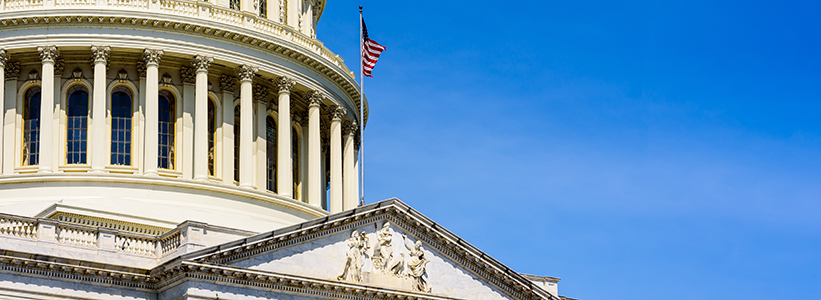Margo McDonnell and Marissa LoCascio, 1031 CORP.’s president and senior vice president, respectively, advocated for 1031 exchanges as part of an advocacy day at the Federation of Exchange Accommodator’s (FEA) Mid-Year Meeting in Washington, D.C. The event, held in April, brought together Qualified Intermediaries across the country to speak with legislators, committees and staff members on Capitol Hill. Education is a key tool for efforts to preserve the effectiveness of Section 1031 for investors, business owners, mission-driven organizations, and the communities where they operate. The “Day on the Hill” is an annual part of the FEA meeting.
Cuts and limitations of Section 1031, the provision in the Internal Revenue Code that enables 1031 exchanges, are often seen as a “pay for,” or a potential source of funding, for new laws.
The Biden Administration budget for 2025 proposes a limitation on Section 1031, capping the deferral to $500,000 for single filers. This limitation has been proposed every year during the Biden Administration. A full repeal was proposed during both the Obama and Trump administrations. Each of these proposals would have effectively or outright eliminated 1031 exchanges as an option for real estate owners and businesses. However, strong advocacy efforts by industry associations and businesses over the course of these administrations have successfully saved 1031s.
The Joint Committee on Taxation (JCT), the nonpartisan budget office that estimates the revenue and cost of provisions in the federal tax code, estimates that the proposed cap of Section 1031 would raise $1.97 billion to fund new laws. However, the tax revenue from 1031 exchanges provides the federal government with nearly $19 billion, nearly 10 times, each year! Legislators often overlook and misunderstand this revenue.
Another strong argument often overlooked is the significant impact of 1031 exchanges on the national and local economies. In 2021, 1031 exchanges created more than 976,000 jobs and $48.6 billion in labor income, and added $97.4 billion to US GDP. They are particularly important during times of market stress, creating resilience and liquidity in the market when financing is difficult.
1031 exchanges are used for housing, retail, commercial, industrial, agricultural, and conservation applications. Nearly 30% of all agricultural transactions involve a 1031 exchange. The provision has helped communities, as well. In one example from Illinois, a 1031 exchange allowed a large investor to convert a shuttered, blighted mall into affordable housing. In another example, 1031 exchanges brought a grocery store and commercial space to an impoverished neighborhood in Chicago.
The preservation of Section 1031 has bipartisan support, but many legislators have misconceptions and misunderstand the true power of 1031 exchanges. Education about the benefits and positive impact on investors, government, and the economy is a continuous need.


